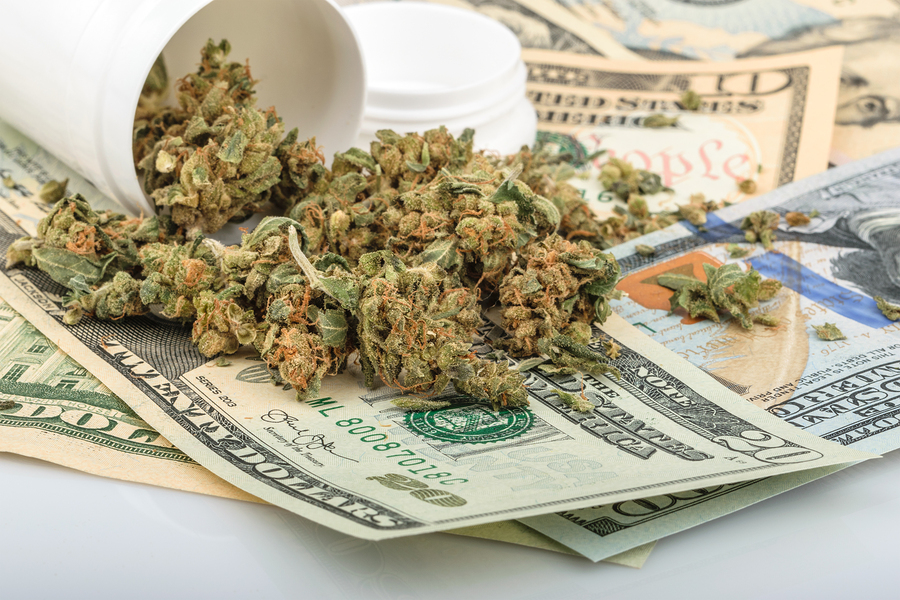5 Relationship Problems You Might Face If Your Partner Doesn’t Smoke Weed

Are potheads doomed to a lonely life? Some ex-partners claim there’s no way a couple will survive when only one of the two smokes weed.
“Pothead” is the operative word here. The total pothead may have a lot of relationship problems. But, marijuana smokers can still enjoy a normal personal, romantic, and sexual relationship with a partner who does not smoke.
The relationship between a weed-smoker and partner who does not take part may have problems. All relationships face challenges. Smoking weed may or may not end the relationship, but so may other behaviors.
5 Relationship Problems You Might Face If Your Partner Doesn’t Smoke Weed
Millions smoke marijuana as therapy for many physical and psychological problems. As state legislatures approve possession and use of cannabis products, pot smokers feel enabled and entitled. So, weed may soon have a presence in more relationships than not. That may present problems for some couples.
Problem #1 - Total Stoner:
If one party to the relationship is a deeply and chronically stoned pothead, even a tolerant partner may feel neglected and excluded. The total pothead clearly chooses the weed experience over the bonding communication of a sustainable relationship.
The weed experience is private and personal. So, even when the smoker talks about the experience, the other party will feel left out. Frequent sharing only aggravates the problem as the non-smoker tires of hearing about the smoker’s experience. What one partner thinks of as sharing wears thin over time.
Problem #2 – Big Spender:

Smoking weed comes with a real cost. Black market or white, the product costs money. Above ground prices include heavy taxes and considerable overhead. A user will consciously or unconsciously invest considerable money.
The occasional user might compare the purchase to that of a bottle of fine wine, a special personal treat. But, the chronic and daily weed smoker puts a lot of money into the habit. When that money comes out of the household budget, it drains the relationship. It leads to arguments and addictive spending.
Problem #3 – Life Avoidance:
Smoking weed leads to psychological and physical escape, stronger for some than for others. Any relationship enjoys the occasional escape from daily or unexpected stress and pain. But, psychological escape can be addictive.
When one partner consistently chooses escape, he/she is opting out of the relationship. They may look to weed as the first recourse for life’s problems. The partners may not realize this is happening. But, eventually the non-smoker feels the isolation. The relationship often follows a pattern in which the smoker slowly increases tolerance for the weed high and loses tolerance for the partnership.
Problem #4 - Personal Habits:
When relationships start, the partners experience and share mutual joys. They might travel or work together. They talk about mutual interests and explore shared adventures. They have friends and include them in discussions and experiences.
But, some partners adopt or slip into poor personal habits. They neglect personal hygiene and carry the skunk smell of marijuana in their clothing, hair, and breath. Non-smokers may find this objectionable.
Problem #5 – Value Shift:

All relationships change over time. They deepen as each partner comes to respect and appreciate the other’s values. They might bond over politics, school loyalties, religious beliefs, and more. As these bonds deepen, there is some trade off. Each party brings something to the table, but they give up something or gain something of value.
Smoking weed can upset that balance. If, for example, a partner increases smoking frequency or spending over time, it taxes that tolerance. If the smoker’s behavior contributes to the partner’s stress and health, it will weaken and break the bond, eventually.
What causes such problems?
ZenQueen, writing on the girlsaskguys forum, summarized the problem, “He loved weed more than me, It got to be all he cared about, he was working 3 jobs to support his habit and didn't have enough time for me…. I feel like he was pushing aside a lot of his emotional problems by smoking weed.”
But, this kind of thing could happen if alcohol, opioids, meth, or factors were involved. Children, in-laws, and infidelity present similar challenges. Anything that draws and consumes one partner’s attention puts the entire relationship at risk.
What to do about it?
Users also should recognize that increased accessibility to marijuana has coincided with increased potency. So, that occasional tote may make social behavior angry, hostile, or aggressive. It may prompt a paranoia or delusions, or it may lock down the smoker.
It, therefore, benefits the weed smoker to reconsider the strain used. Smokers looking for an occasional and light experience should choose strains with lower THC scores to reduce the psychoactive effects. Smokers looking for calming and soothing therapies for pain and disease should look for high CBD scores.
In either case, the partners should discuss the use. As with any other relationship factors or habits, open communication puts things on the table. It’s important for the non-smoker to know what the smoker gets out of it, what they will spend for it, and what they consider a level of tolerance.
The smoker needs to know what the non-smoker objects to, what level of spending the non-smoker sees as conscientious, and what the non-smoker sees in the smoker’s behavior.
Despite personal stories about failed relationships, you won’t find researched evidence that smoking marijuana cause relationship problems. If it is a factor in a breakup, it is only one influence among others.
When weed becomes a third party in the relationship, it should not upset the relationship’s balance. If overused or abused, it will destroy partnerships. When welcomed to the relationship for what it is, smoking weed can enhance the relationship by putting partners at ease and relieving physical and psychological stresses.
But, it seems the one who smokes weed has some larger responsibility in the relationship management.

